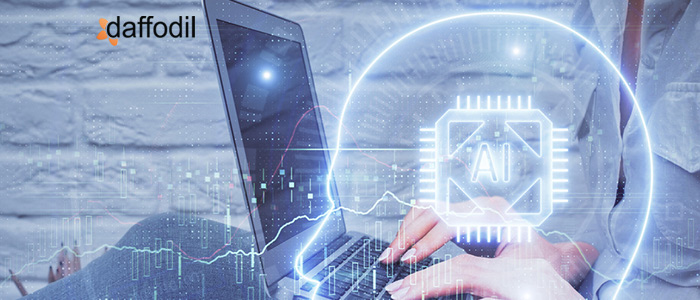
Artificial Intelligence is resolving real-world, complex challenges at scale. With its transformative capabilities, AI has managed to enter some of the sensitive areas including healthcare, finance, cyber security, etc.
With great power comes great responsibility. In the recent past, AI algorithms are criticized for lacking visibility over how algorithms arrive at conclusions. There have been scenarios where the algorithms have proven to reflect societal biases about gender, age, culture, and race.
The bias nature of an AI system can be accounted to algorithmic AI wherein the algorithm is trained using biased data. Another type of bias in AI is societal wherein assumptions create blind spots in our thinking. Societal bias directly influences algorithm AI bias.
“A biased AI system is an anomaly in the output of a machine learning algorithm that results in a skewed outcome, low accuracy levels, and analytical errors.”
Bias in AI is not just a theoretical concept. Over time, there have been examples of an AI system being unfair for certain societal factors. Let’s know a few of them.
AI Bias: Example 1
Back in 2014, Amazon developed an AI-based recruitment tool for automating the cycle of reviewing job applicants and rate them to search for the top talent for several technical profiles. However, the ML team at Amazon discovered that their tool was not rating the candidates for software developer jobs or other technical profiles in a gender-neutral way.
What went wrong?
For training the ML model, Amazon used historical data from the last 10-years. This data was biased against women since 60% of Amazon’s employees from the tech segment were males. This dominance in the data set made the ML model prefer male candidates over women.
AI Bias: Example 2
The US Department of Housing and Urban Development sued Facebook for violating the Fair Housing Act. Facebook’s ad-serving algorithm allowed the advertisers to limit housing ads based on characteristics such as race, gender, etc.
What went wrong?
Problem framing and data collection can be the issues related to Facebook’s ad-serving algorithm. When the objective of the ML model is misaligned with the need, it is called problem framing.
With Facebook’s advertising tool, the advertisers are asked to select from three optimization objectives: Number of views, number of clicks, and amount of engagement that an ad receives. However, this has nothing to do with business goals. Thus, the algorithm discovered that it could earn more engagement by showing ads to white, which consequently end up discriminating the black users.
Moreover, the training data utilizes historical preferences that people have demonstrated in past. The algorithm will continue to show the ads to people who have earlier engaged with similar ads.
These are some of the several examples that existed related to bias in an AI system. In bigger scenarios and research, a biased system can have a troubling impact. But, what is the solution to deal with this problem?
In the later segment of this blog post, we will discuss Ethical AI as the solution to bias in AI systems. We will discuss the principles that ensure that an Artificial Intelligence solution has attributes such as fairness, privacy, security, and interpretability.
ALSO READ: Artificial Intelligence for Businesses: What's Trending?
Ethical AI and its Principles
Ethical AI is a set of principles for designing an Artificial Intelligence (AI) solution using a code of conduct to ensure that the automated system is non-bias. When designing an ethical AI solution, the following principles should be followed:
- It should be socially beneficial
- It should not create unfair bias
- It should be tested for security
- It should be accountable to people
- It should uphold standards of scientific excellence
Artificial Intelligence is creating several opportunities to improve the ways businesses operate. It is also augmenting the way people perform their day-to-day tasks. When solutions are developed with principles, they lay down the foundation for a technically and socially right system.
Building an ethical AI solution for your business
When developing an AI solution, our team strictly pays attention to following AI ethics. If your existing AI solution is biased or you are planning to develop an unbiased AI solution, then our AI development company is there to help you.
To know more about AI ethics and how they can be integrated into your solution, set up a free consultation with our domain experts. This no-obligation session will help you to set a roadmap for your solution, in terms of the technology stack, ethical principles, cost, scalability, and other factors related to development.



